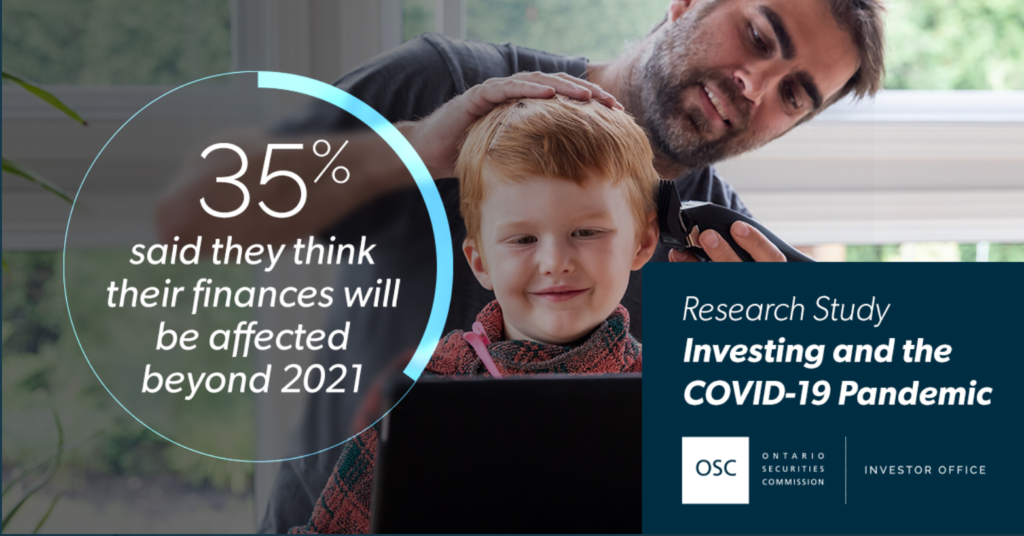What does your investment portfolio look like? How has it changed since COVID? My wealthier friends have made significant gains, while my less wealthy friends are in survival mode. I have done quite well though I don’t like to talk about it. I found it interesting to read the new study released by the Ontario Securities Commission that explores the impact of the pandemic on the behaviours and attitudes of investors.
The COVID-19 pandemic has uniquely affected the financial situation of investors. Most investors are simply trying to endure the hardship and uncertainty of the pandemic, but some see it as an opportunity to increase their participation in the capital markets.

“We continue to see the uneven impact that this crisis is having on retail investors,” said Tyler Fleming, Director of the Investor Office at the OSC. “Understanding how the pandemic is affecting different segments of the population is essential for supporting retail investors during this difficult time.”
The study has several findings, including:
- Being Financially Unprepared: Nearly one in ten reported having faced an unexpected expense of $5,000 or more due to COVID-19.
- Shifting Circumstances: 32 per cent of investors reported being in a worse financial situation while sixteen per cent found their financial situation to be improved.
- Financial Contributions: 80 per cent of investors have continued saving for important goals such as retirement and their children’s education.
- Uneven impact: 58 per cent of households earning less than $50,000 per year stopped contributing to one or more savings goals.
- Closely Reviewing Financial Priorities: Seventy-three per cent of investors agree they should save more money for emergencies.
- Passive and Active Investors: 52 per cent of investors had not bought or sold any investments during the pandemic. Women and older Canadians were more likely to have not bought any investments. The other half of investors have been active in buying or selling investments.
- Net Buyers: 63 per cent of active investors increased their holdings by buying more investments than they sold.
- Selling investments: Those who sold did so to pay for expenses (29 per cent) and to realize profits from increased market prices (17 per cent).
- Buying investments: Those who bought mainly did so because they make contributions on a regular basis (30 per cent) or because they saw a buying opportunity because assets were undervalued (28 per cent).
- Divided Beliefs about the Future: Thirty-six per cent of investors think that the pandemic will affect their financial situation until the fall of 2021 while 35 per cent think it will affect them for longer.
The full survey findings are available online at https://www.osc.ca/en/investors/investor-research-and-reports.
How have you been impacted by COVID-19? Is your portfolio up or down? Let us know!
Tweet